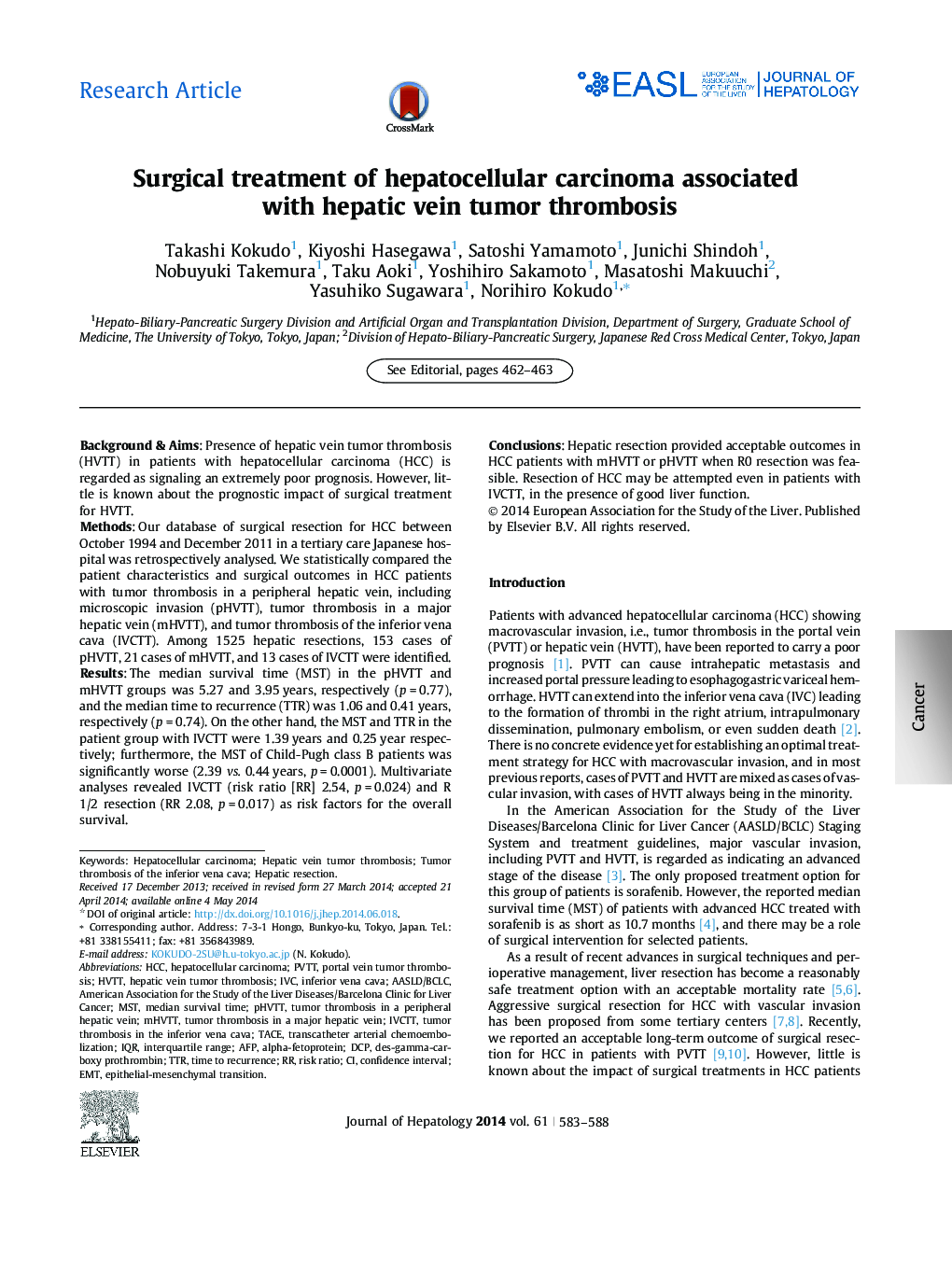| Article ID | Journal | Published Year | Pages | File Type |
|---|---|---|---|---|
| 6103251 | Journal of Hepatology | 2014 | 6 Pages |
Background & AimsPresence of hepatic vein tumor thrombosis (HVTT) in patients with hepatocellular carcinoma (HCC) is regarded as signaling an extremely poor prognosis. However, little is known about the prognostic impact of surgical treatment for HVTT.MethodsOur database of surgical resection for HCC between October 1994 and December 2011 in a tertiary care Japanese hospital was retrospectively analysed. We statistically compared the patient characteristics and surgical outcomes in HCC patients with tumor thrombosis in a peripheral hepatic vein, including microscopic invasion (pHVTT), tumor thrombosis in a major hepatic vein (mHVTT), and tumor thrombosis of the inferior vena cava (IVCTT). Among 1525 hepatic resections, 153 cases of pHVTT, 21 cases of mHVTT, and 13 cases of IVCTT were identified.ResultsThe median survival time (MST) in the pHVTT and mHVTT groups was 5.27 and 3.95 years, respectively (p = 0.77), and the median time to recurrence (TTR) was 1.06 and 0.41 years, respectively (p = 0.74). On the other hand, the MST and TTR in the patient group with IVCTT were 1.39 years and 0.25 year respectively; furthermore, the MST of Child-Pugh class B patients was significantly worse (2.39 vs. 0.44 years, p = 0.0001). Multivariate analyses revealed IVCTT (risk ratio [RR] 2.54, p = 0.024) and R 1/2 resection (RR 2.08, p = 0.017) as risk factors for the overall survival.ConclusionsHepatic resection provided acceptable outcomes in HCC patients with mHVTT or pHVTT when R0 resection was feasible. Resection of HCC may be attempted even in patients with IVCTT, in the presence of good liver function.
